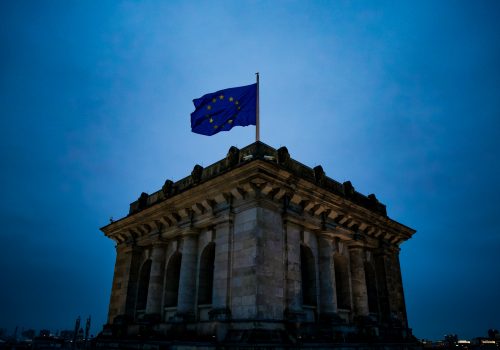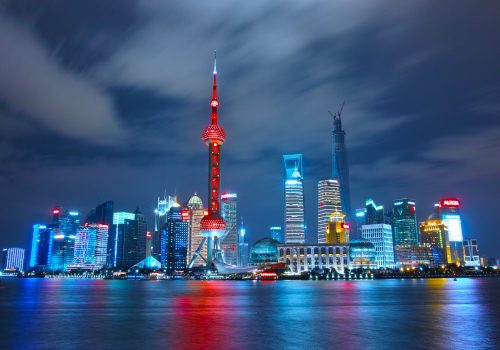Third parties don’t want to choose sides
Shocked by the warm dispute, particularly at the Paris meeting, international scientists, academics, business, and think tank representatives not only stressed the importance of cooperation when it comes to AI, but also worried about the negative externalities of wide-ranging competition. German experts at the Berlin workshop, for instance, went so far as to almost agree with the Chinese view that, for the last four years, unpredictability in the global system did not come from China, but more from the United States and the highly erratic Trump administration.
For Europe, a continent that has benefited from the liberal international order like no other, the trajectory of economic decoupling could not be more concerning. Germany in particular exhibits a growing panic in its decision-making circles about being put in a position where the country is forced to choose sides. Already today, China is starting to create guidelines that are incompatible with international standards. European-made computers sold to the Chinese market, for example, have to include Chinese produced control programs (CPM), which exemplifies the difficult trade-offs between national security concerns and a desire for market access.
Furthermore, many worried about what could follow Pax Americana, especially since providing global security has always been a costly endeavor. A European Union (EU) approach talked about in detail at the Brussels and Berlin roundtables was that Europe could serve as a bridge between the United States and China, somehow mitigating the ever-intensifying rivalry. The perceived success of the EU’s privacy law, also known as the GDPR, encouraged some to believe that Brussels could use Europe’s market power to set norms that others would have to follow, if they were to continue doing business in the world’s largest and wealthiest marketplace. Additionally, the countries on the continent have the expertise and infrastructure (talent, universities, and regulations) to develop what many call “a Third Way,” separate from China’s state-focused and the US’ free market development of technologies.
Experts indicated that the PRC was a complex partner for Europe, which has encountered cooperation, competition, and sometimes confrontation in dealing with China. Not too long ago, the EU named the People’s Republic a “systemic rival” and, similar to the United States, European member states worry about IP theft as well as Chinese acquisitions of Western firms with sensitive technology. But there is no black-and-white approach, particularly due to some member states’ economic dependence. Europe’s default would always be cooperation, even if some restrictions on economic ties need to be put in place. China might be destined to become the largest economic power in the world, and it continues to hold sway over export-oriented economies, but the majority of discussants still saw Germany and the EU fully embedded in the Western system. In order to manage that difficult balancing act, some supported the notion of a three “M-approach” for Europe in dealing with China: multilateral, non-militaristic, and Machiavellian.
The full text of this report is split across a collection of articles to give readers the opportunity to browse in any order. To return to the main page click here.

The GeoTech Center champions positive paths forward that societies can pursue to ensure new technologies and data empower people, prosperity, and peace.






